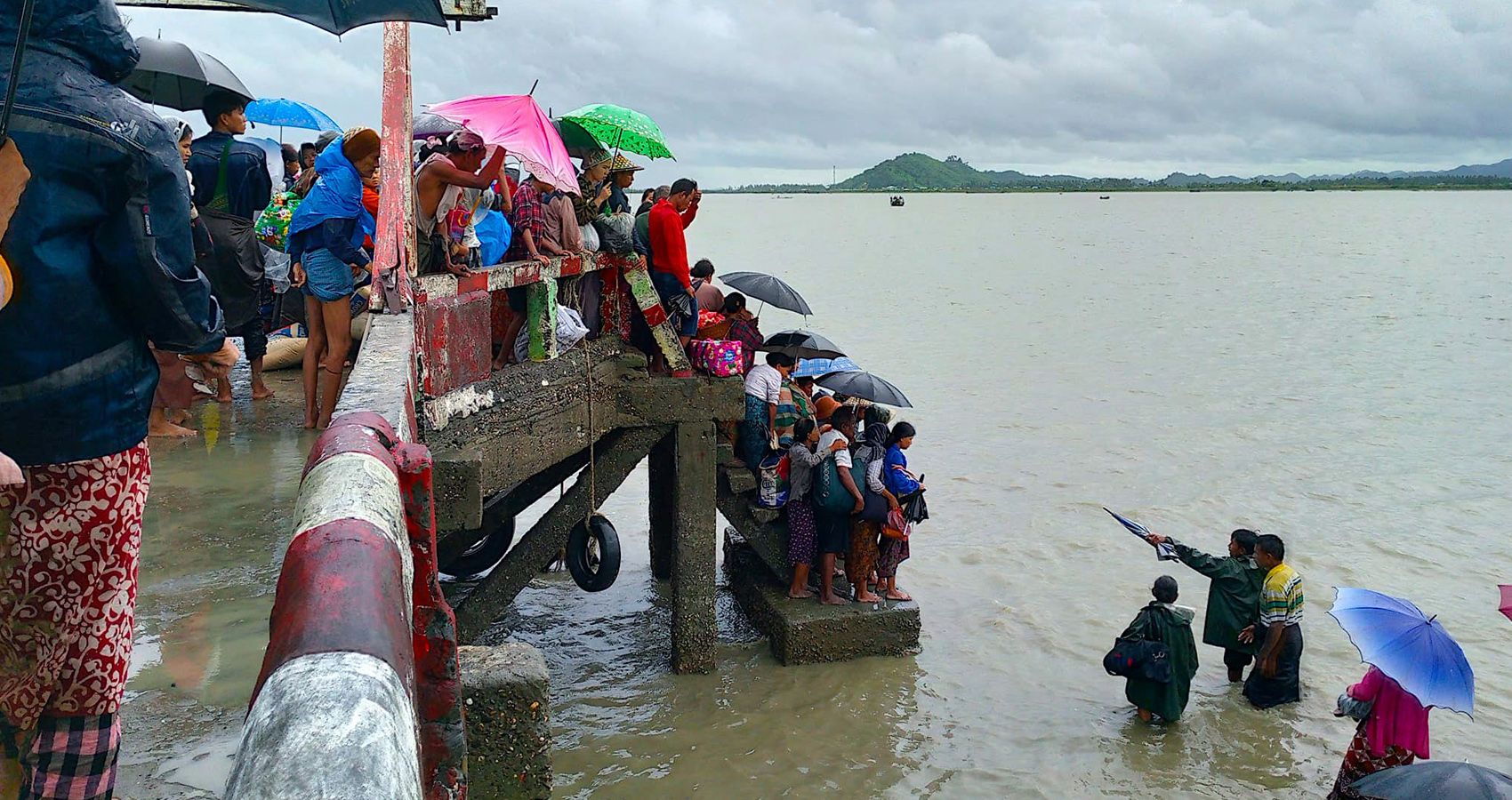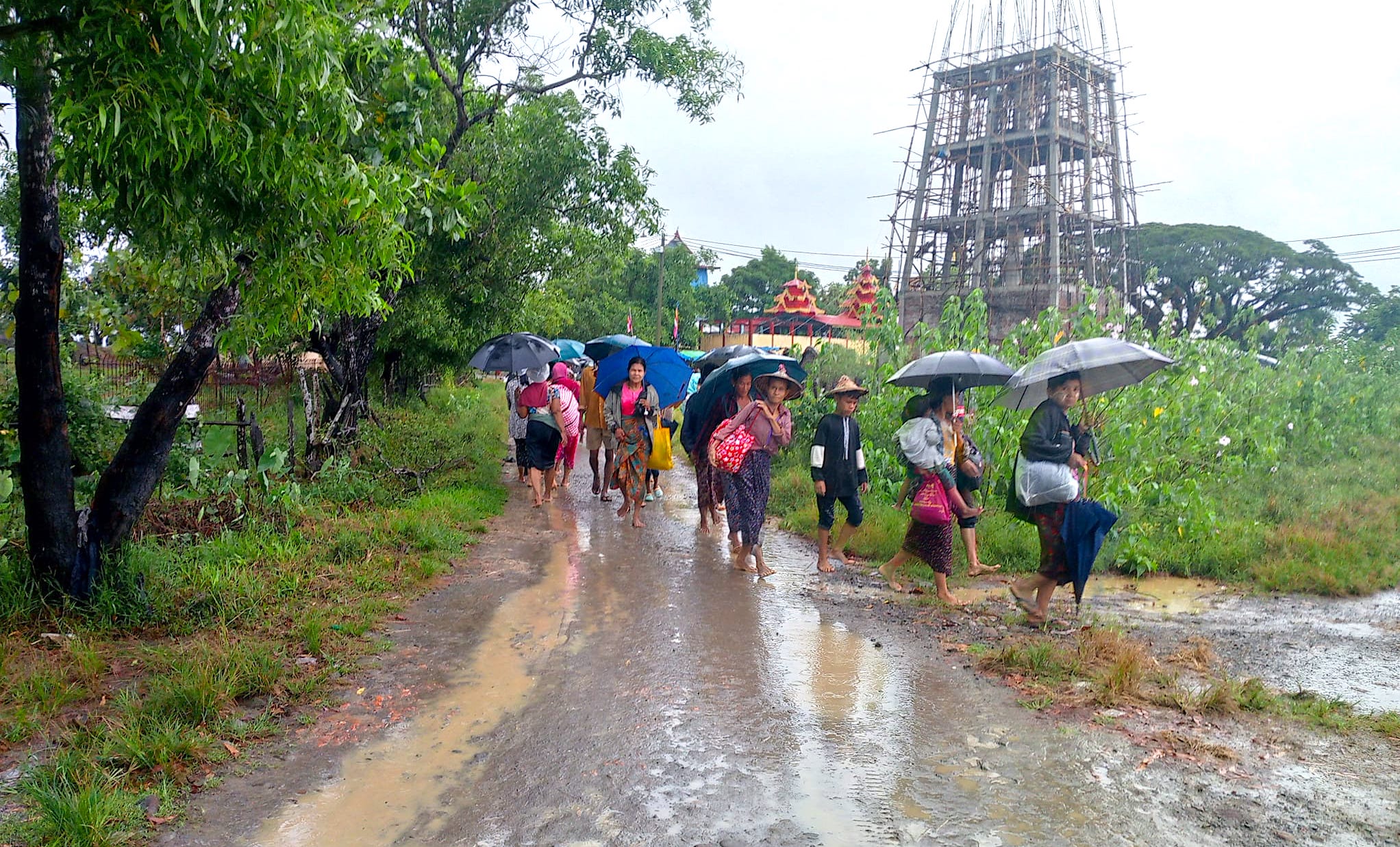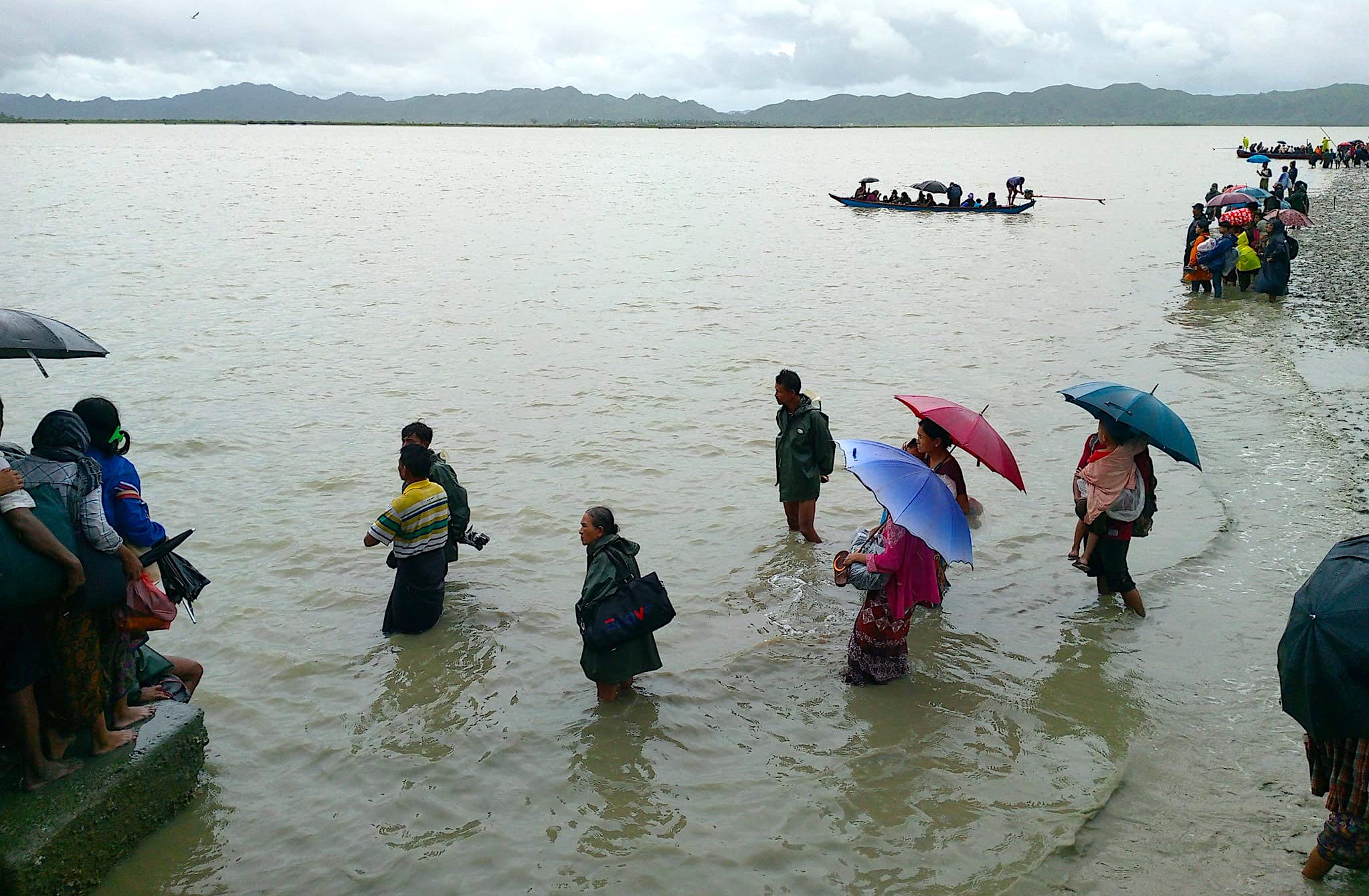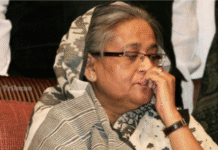
Continuous bombardments by regime troops in western Myanmar’s Rakhine State have forced a mass exodus of civilians from both towns and villages over the past two weeks.
The onslaught comes after the ethnic Arakan Army (AA) launched an offensive against junta forces in Rakhine on November 13, breaking a fragile yearlong ceasefire. On November 16, junta troops pounded Pauktaw after the AA seized the town’s central police station, prompting a mass evacuation by residents.
“The town is completely deserted now,” a woman resident who fled Pauktaw told The Irrawaddy.
“The main market has been destroyed in the fighting. Each day, I look at the town from where I am hiding and can’t hold back my tears as I see smoke rising. I heard that all the houses along the riverbank have been burnt down.”
The two sides have been fighting for control of Pauktaw for more than two weeks. The regime is conducting a joint operation involving the army, navy and air force.
Civilians in neighboring Minbya have also fled to the countryside amid daily bombardment by Light Infantry Battalion 379 and a hilltop outpost and nightly rampages through the town by junta vehicles firing indiscriminately, a resident told The Irrawaddy.

The AA issued a public alert about the junta bombardments on Thursday, advising civilians on how to protect themselves. The ethnic armed group warned the public to stay alert for airstrikes including drone attacks and dig trenches for protection.
Food shortages are also being reported across the state after the Myanmar military blockaded roads and waterways following the renewed fighting.
“People from rural areas can’t go to towns to buy goods,” a Minbya Township resident. “Food items are short in supply in rural villages. Rice mills can’t operate as they can’t buy diesel. We don’t know what to do.”
On November 24, the central market in Ponnagyun town went up in flames as junta warships pounded the town. Civilians have since fled the town in droves, said a resident.
“The main market was destroyed by junta shelling, so nothing was left for people to buy. Many people fled with only the clothes on their backs as they [junta forces] opened fire on the town. Some people could not afford bus fares and had to walk for a whole day through paddy fields to rural villages. Petrol prices have increased threefold. The bus fare has also increased from 5,000 kyats [around US$ 1.50] per person to 15,000 kyats.”
Residents have also fled Kyauktaw and Mrauk-U towns due to random junta artillery strikes and armed patrols. Meanwhile surrounding villages are running short of food and fuel

Farmers in Kyauktaw, Minbya, Mrauk-U and Rathedaung townships said they are unable to bring in the harvest because junta troops in nearby bases are randomly firing into their fields.
Meanwhile residents of Rakhine State’s capital, Sittwe, report a growing sense of public panic after the regime blockaded the town on November 14.
At least 30 civilians have been killed and nearly 50 injured in regime artillery and drone attacks since November 13, according to Rakhine-based media outlets.
The regime has denied it is bombarding residential areas, alleging the AA is responsible for the attacks.









